Affiliate Marketing Disclosure: How to Add One the Right Way

Affiliate marketing can seem complex at first.
Between signing up for affiliate programs, finding your niche, and building an audience, there’s a lot to learn.
With all of that juggling, one of the most overlooked aspects of affiliate marketing is crafting an affiliate marketing disclosure that is FTC and program-compliant.
In this article, we’ll take you through what an affiliate marketing disclosure is, who needs them, and why they are important.
Additionally, there will be best practices and examples at the end.
So let’s get started!
Why Are Affiliate Disclosures Mandatory?
Affiliate marketing disclosures became a requirement in 2009 when the Federal Trade Commission (FTC) started cracking down on misleading messages from creators recommending products or services.
Any material connection between an advertiser and an endorser must be disclosed to the consumer. Failure to do so could be considered deceptive advertising and may result in penalties from the FTC.
When Do I Need to Place an Affiliate Disclosure?
Affiliates need to place a disclosure whenever there is a material connection between the affiliate and the product or service they are promoting.
According to the FTC, affiliates should disclose their relationship with the advertiser in a clear and conspicuous manner.
This disclosure should be placed near any endorsement or recommendation of the product or service, ensuring that consumers can easily see it before making a purchasing decision.
It’s important for affiliates to err on the side of caution and disclose their relationship whenever there’s any potential for bias or financial incentive influencing their recommendations.
Where Do You Need to Place Affiliate Disclosures?
Where you need to place an affiliate disclosure depends entirely on the channel or method you’re using to promote affiliate links.
Below, we’ll jump into a few different examples of affiliate disclosures per marketing channel, so you can better understand where your affiliate disclosures should be placed.
Blog Example #1 - New York Times Wirecutter
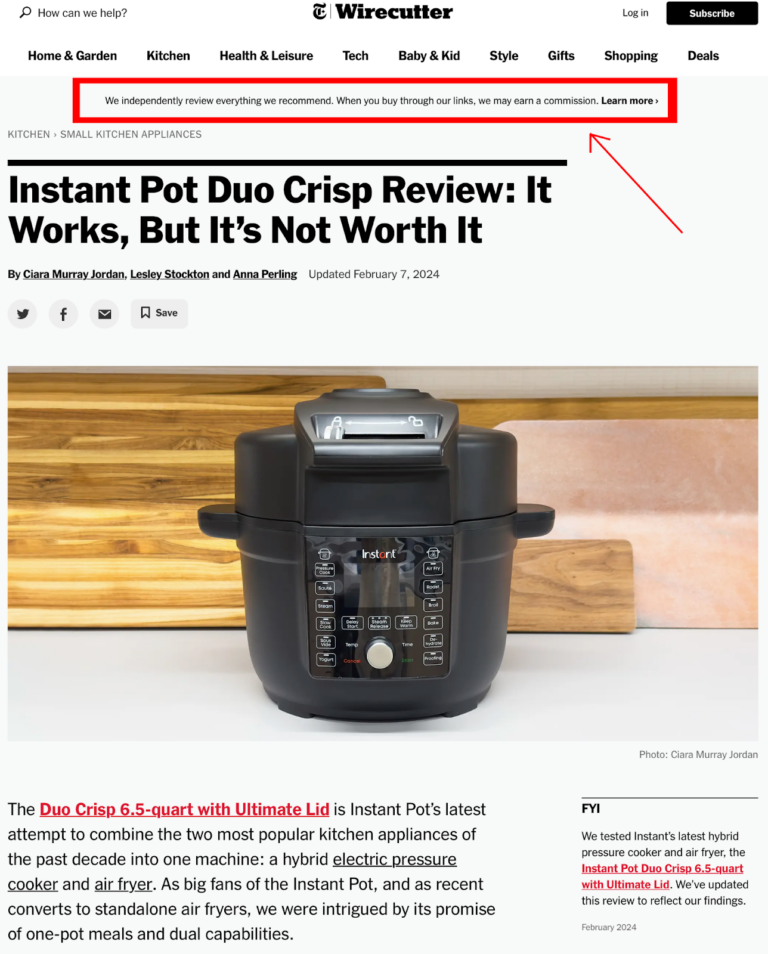
“We independently review everything we recommend. When you buy through our links, we may earn a commission. Learn more.”
While the placement is good, as it’s found at the top of the page, and it includes a link to a full disclosure.
Blog Example #2 -TechRadar
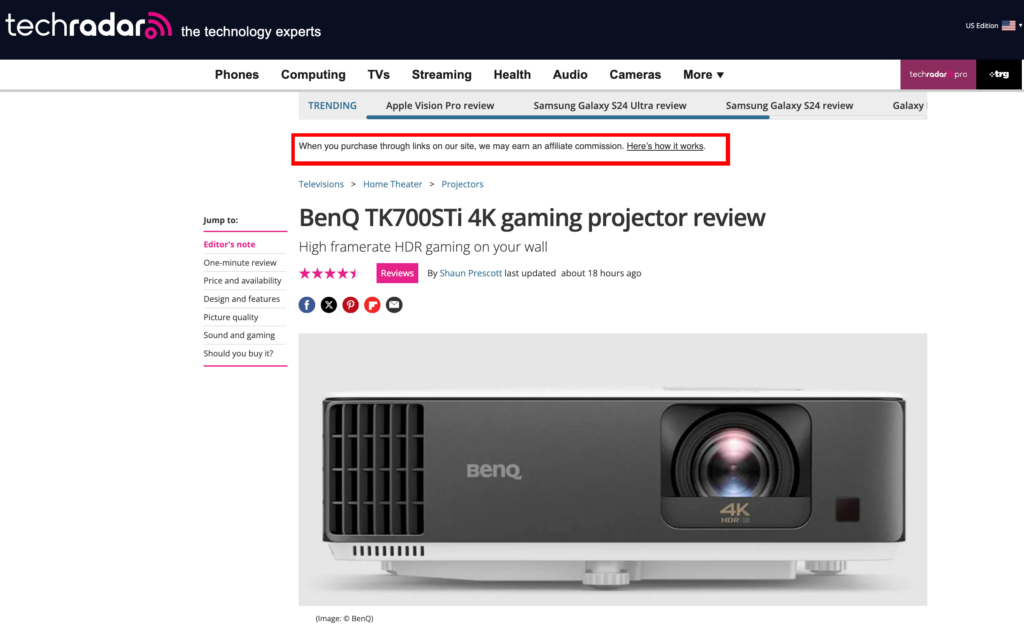
When you purchase through links on our site, we may earn an affiliate commission. Here's how it works.
Very similar to the Wirecutter affiliate disclosure example, the placement is great and like the links to a full in-depth disclosure.
Youtube Example #1 - Linus Tech Tips
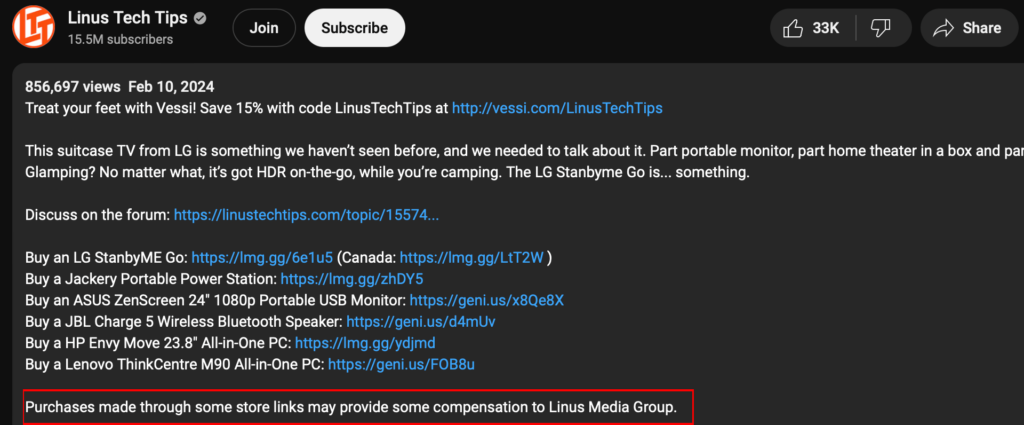
Purchases made through some store links may provide some compensation to Linus Media Group.
Youtube Example #2 - ThinkMedia
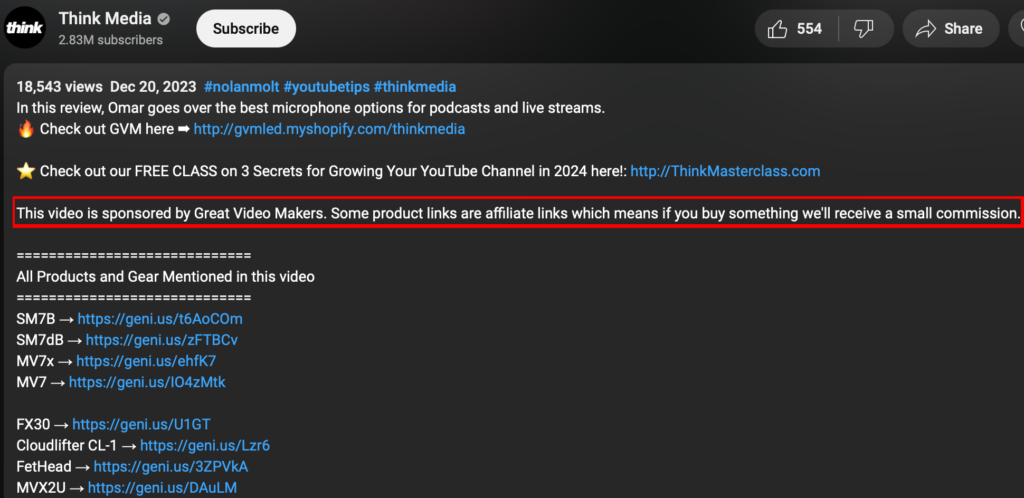
Some product links are affiliate links which means if you buy something we'll receive a small commission.
How Geniuslink Choice Pages Simplify Affiliate Disclosures?
Because of these requirements, we have built an affiliate disclaimer into all of our Choice Pages.
What are Choice Pages you ask?
Here at Geniuslink, we are in the business of helping affiliate marketers, whether that is providing a handy dashboard to manage your links, localizing international traffic, or keeping our clients out of hot water with the FTC (while helping them earn more!)
Choice Pages are a tool we built to allow affiliate marketers to leverage multiple affiliate programs at the same time when recommending product and they’ve even been proven to increase earnings 2.2x!
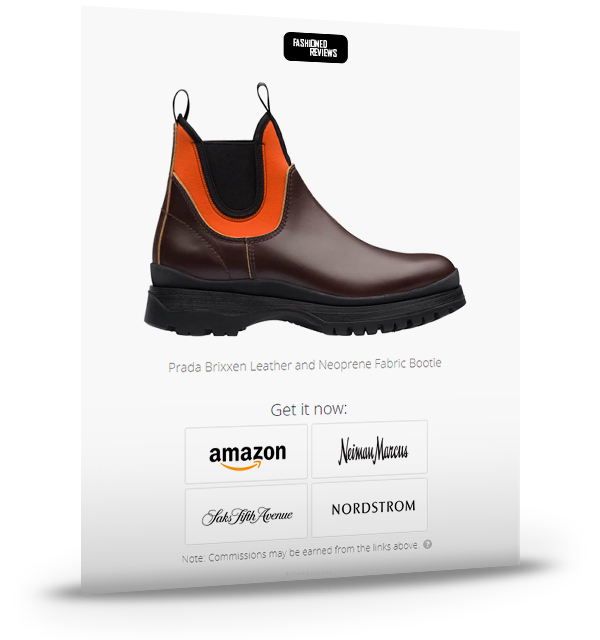
Author
-
Austin Tuwiner is a growth marketer and main contributor to the Geniuslink blog. When he's not nerding about affiliate marketing, you'll find him scuba diving South Floridas reefs.
Author
-
Austin Tuwiner is a growth marketer and main contributor to the Geniuslink blog. When he's not nerding about affiliate marketing, you'll find him scuba diving South Floridas reefs.
More revenue from every link you share
Geniuslink makes localizing, tracking, and managing smart links dead simple, so you can earn more without added work.
